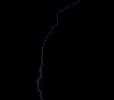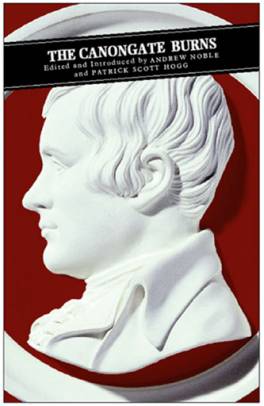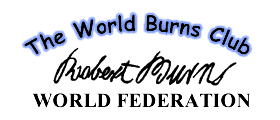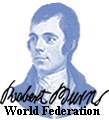|
|
|
|
|
|
|
|
A
WAR OF WORDS :-
Are these the lost works of Robert Burns?
There's
nane shall ken , There's nane can guess !
|
 |
| Since
1997, a number of academics have fiercely debated the proclaimed discovery
of certain "long lost" works of Robert Burns. Regrettably, the
debate became very bitter between those concerned, and to my mind, the argument
has never been properly presented to the wider and more representative Burns
audience, comprising the legions of enthusiasts throughout the world, so
far-removed from the intensity of the learned academics. As we fast approach
"Burns Season", I have no doubt that the debate will once again
surface…..and for all the wrong reasons. |
 |
|
Make
no mistake, those involved in the argument are clearly Burns experts of
the highest calibre, and collectively they all have contributed immensely
to our knowledge of The Bard. Much has been written on this subject, (e.g
Rabbie
Without a Cause), but few have presented the results of the
research itself…..unless of course you buy the books ! As such, I feel
that it is right that this web site should let you, our members and visitors
to the site, judge for yourselves, based on an simple presentation of the
evidence, and without having to become embroiled in the unhelpful war of
words. |
|
The debate came to the fore as a result
of extensive and welcome research carried out by a leading Burns expert,
Patrick Scott Hogg, who states in respect of one particular example of
a "lost work" - "Ode to Hibernia's Sons" :-
"Enthusiasts of Burns will immediately recognise this as an early
draft of the
Ode
for General Washington on His Birthday.
A manuscript of such an early varient edition was sold in holograph in
London during May 1862.The remarkable thing about the manuscript is that
it refers to Hibernia (Ireland) and not to Columbia (America). It is recorded
in manuscript along with many other authentic pieces which surfaced from
the original Currie archives in Liverpool, as sold by auctioneers Puttock
and Simpson. (A copy of the sales catalogue is in the Mitchell Library,
Glasgow. It was written up by Edwin Bigmore). It would appear that the
manuscript was later destroyed, or is still in private hands, given that
this variant has never been mentioned before."
" If the auction sale's catalogue
had not been printed in such detail (it spells out clearly that this poem
existed in the bard's hand, but with only one difference, the substitution
of Hibernia for Columbia), no-one would have known that Burns gave passionate
support to the Irish pro-democracy radicals. Leading Irish radicals travelled
to Scotland and sat with the National Convention of Friends of the People
in Edinburgh. One, Hamilton Rowan, publicly insulted by Robert Dundas,
challenged Dundas to a duel, but made sure he met the leading Irish radical.
This version was probably written in early 1794 when the Dublin offices
of the Friends of the People had been raided and their leaders arrested
for seditious pamphleteering. By the end of 1794 over 200,000 people across
Ireland had taken the oath of the radical and reformist group the United
Irishmen, who had made links with many such groups in Scotland and England,
particularly the United Scotsmen. It is known that at least two Irish
radicals visited Burns during 1793/4, including Luke Mullen."
"These first stanzas of the later Washington Ode only appeared in
print in 1874. The last stanzas of the Washington Ode referring only to
Scotland were published before 1874, but these first lines remained unknown
until the late 19th century. There is no doubt whatsoever that this early
variant edition with its highly seditious views, are authentic. They were,
after all, found in the bard's own hand and surfaced among 200 plus genuine
manuscripts which came from Dr James Currie's archives."
Ode to Hibernia's
Sons
No Spartan tube,
no Attic shell,
No lyre Æolian I awake;
'Tis Liberty's bold note I swell,
Thy harp, Hibernia, let me take.
See gathering thousands, while I sing,
A broken chain, exulting, bring,
And dash it in a tyrant's face!
And dare him to his very beard,
And tell him he no more is fear'd,
No more the Despot of Hibernia's race.
A tyrant's proudest insults brav'd,
They shout, a People freed! They hail an Empire saved.
Where is Man's godlike form?
Where is that brow erect and bold,
That eye that can, unmov'd, behold
The wildest rage, the loudest storm,
That e'er created Fury dared to raise!
Avaunt! thou caitiff, servile, base,
That tremblest at a Despot's nod,
Yet, crouching under the iron rod,
Canst laud the arm that struck th' insulting blow!
Art thou of man's Imperial line?
Dost boast that countenance divine?
Each skulking feature answers, No!
But come, ye sons of Liberty,
Hibernia's offspring, brave as free,
In danger's hour still flaming in the van,
Ye know, and dare maintain The Royalty of Man.
WBC Comment:-
As clearly stated by Hogg,
the only difference between this "Ode to Hibernia's Sons" and
"Ode
for General Washington on His Birthday" amounts to the change
of one solitary word …….from "Columbia" to
"Hibernia" (or vice versa). Whilst the "Hibernian"
piece comprises only two stanzas, it would appear that Hogg considers
this change to demonstrate that Robert Burns was supportive of the "Irish
pro-democracy radicals" thus possibly introducing yet another interpretation
of Burns' political sympathies. One simple word…..a whole new meaning
?
Other examples of Hogg's research include
his claimed discovery of three new poems found in a publication of Burns
time - "The Gentleman's Magazine"
The poems in question are:-
1. Humanity: An Ode.
2. On the Late Death of Dr Adam Smith.
3. Verses Written Upon a Blank Leaf in COWPER's POEMS Belonging To A Lady
Hogg introduces us to the pieces saying:-
"In the early summer of 1794 Robert Burns published in The Gentleman's
Magazine his dedicatory sonnet On the Death of Robt. Riddell, Esq. of
Glenriddel. Three months later the journal contains an undeniable work
of Burns, August 1794, which has until now never been seen by Burns scholars.
The poem is an abridged version of A Winter Night, first published in
The Edinburgh Edition, 1787. The new version is not a reprint of the old.
It has a few hitherto unknown lines which show some re-appraisal and improvement
by Burns. It has now been added to the recent THE CANONGATE BURNS as a
separate mature variant edition of A Winter's Night. The footnotes in
The Gentleman's Magazine are detailed literary allusions evidently provided
by Burns himself. They include quotations from Shakespeare, Young and
Thomson - three of the bard's favourite poets. Moreover, as Professor
Daiches has remarked, the new version of the poem, re-titled by Burns,
is a qualitatively improved version that enhances the sentiment and closing
rhyme of the poem. Given that it is signed 'R.B' it was surely sent to
the journal by Robert Burns himself."
|
Humanity:
An Ode.
Blow, blow, ye winds! with heavier gust!
And freeze, thou bitter-biting frost!
Descend, ye chilly, smothering snows!
Not all your rage, united, shews
More hard unkindness, unrelenting,
Vengleful malice, unrepenting, |
Note:
The verses from Humanity: An Ode, start half way through
"On
a Winters Night"
(click link to view in separate window). Differences have been underlined
opposite.
|
|
Than
heav'n-illumin'd Man on brother Man bestows! -
See stern Oppressions iron lip,
See mad Ambition's gory hand,
Sending like blood-hounds from the slip,
Woe, want and murder, o'er a land!
Even in the peaceful, rural vale,
Truth, weeping, tells the mournful tale,
How Luxury, with Flattery by her side,
The parasite, empoisoning her ear,
With all the servile wretches in the rear,
Looks o'er proud Property extended wide;
And eyes the simple, lowly hind,
Whose toil upholds the glittering show,
A creature of another kind,
Some coarser substance, unrefin'd,
Plac'd for her lordly use thus vile below!
Where, where, is Love's fond, tender throe,
With lordly Honour's lofty brow,
The powers you proudly own?
Is there, beneath Love's noble name,
Can harbour, dark, the selfish aim,
To bless himself alone? -
Mark maiden innocence, a prey
To love-pretending snares:
This boasted honour turns away,
Shunning soft Pity's rising sway,
Regardless all of tears, and unavailing prayers.
Perhaps this hour, in misery's squalid nest,
She strains your infant to her joyless breast,
And with a mother's fears shrinks at the rocking blast!
O ye! who sunk in
beds of down,
Feel not a want but what yourselves create,
Think, for a moment, on his hapless fate,
Whom friends and fortune quite disown!
Ill-satisfy'd keen Hunger's clamorous call,
Stretched on his straw he lays himself to sleep,
While through the ragged roof, and chinky wall,
Chill, o'er his slumbers, falls the drifty heap!
Think on the dungeon's grim confine,
Think on the terrors of the mine,
Where guilt and poor misfortune pine!
Guilt, erring Man, relenting view!
Nor let thy legal rage pursue
The wretch, already beaten low
By dire Misfortune's undeserved blow!
Afflictions sons are brothers in distress;
A brother then relieve, and God the deed shall bless.
R.B.
|
|
|
|
|
Hogg concludes by saying:- "Humanity: An Ode has, quite remarkably,
been unrecorded during the past two centuries. It is entirely logical,
therefore, to assume that one or two additional pieces of poetry from
Burns may have slipped the net of any previous searches. Hence, a detailed
search was made in the poetry section of The Gentleman's Magazine from
1786 until 1800 and the result was a further epigram, from the issue of
September 1790, on page 843. It too is almost certainly from the bard:
WBC Comment: -
Whilst a previously unknown
version may have been penned by Burns, the differences presented appear
to me, to neither improve nor detract from the known verses in A Winter's
Night. As such, I personally find this to be only mildly interesting within
the spectrum of Burns. However, I do agree with Hogg, that it is inconceivable
the literary world has by now found ALL of Burns works & letters.
Many more must surely have been lost and we live in hope that one day,
a large quantity of exciting work will be discovered.
On the Late Death of Dr Adam Smith.
Death and Hermes of late in Elysium made boast,
That each would bring thither what earth valued most:
Smith's Wealth of Nations Hermes stole from his shelf;
Death just won his cause - he took off Smith himself.
signed Agricola.
Hogg states:- "Burns is the only known poet during the 1780-1800
period who employed the pen-name Agricola. It was first used by him in
1789 when he published On the Departed Regency Bill in the spurious Star
newspaper in London. There is no recorded usage of the pen-name in the
extraordinarily detailed 9 volume A Dictionary of Anonymous and Pseudonymous
English Literature 1600-1960, which lists all known documents and books
archived within British libraries. While the pen-name can be traced in
Scotland no more than a couple of times in newspaper "letters to
the editor" by members of the farming community, there is no example
in poetry other than Burns. The penname alone, given that Burns employed
it only the previous year, is sufficient grounds to ascribe the epigram
to Burns."
"Additional contextual and literary evidence clinch the case. Burns
mentions Adam Smith in his letters and is known to have read both The
Wealth of Nations and Smith's Theory on Moral Sentiments. In 1790 Burns
wrote to a friend that he was "not yet gone to Elysium", the
language we find in the epigram. Although many of Burns's epigrams employ
a wry wit, only his best are as clever as this recovered piece. It bears
the bard's trademark in epigram style, with final clincher-line wit. Death
is an ever present character in Burns who often wins his cause by taking
various Ayrshire characters to his dark den just for their wit, character
or rare honesty. For these reasons and the fact that we know this pen
name is one used by Burns, the evidence points conclusively to the new
epigram being genuine. "
"Furthermore, one more example occurs in The Gentleman's Magazine
bearing the poet's initials, R.B. Of course, the initials R.B. are not
definitive proof of the poet's authorship. Yet, initials are a strong
first pointer, given that there is no evidence to suggest another poet
of this era using the same initials. A search for the initials "R.B"
took in all printed and currently archived newspapers, journals and chapbooks
from 1785 until 1800. We know that Burns signed several poems "R.B"
when he sent them to newspapers, such as the controversial anti-Hanoverian
Lines Written on a Window in Stirling. So, again, the signature evidence
suggests Burns as the probable author."
"Verses Written Upon a Blank Leaf in COWPER's POEMS Belonging To
A Lady, may indeed be Burns's work. It is an occasional poem with little
literary significance and although the verse is mediocre, it does have
some merit and several echoes from his known writings. It is found in
The Gentleman's Magazine of April 1789, (page 353) a time when Burns was
farming Ellisland, the neighbour of Robert Riddell, who was a frequent
contributor to that journal. The "Eliza" mentioned in the first
line may have been Elizabeth Riddell, wife of Robert Riddell. Burns was,
by 1789, familiar with the verse of William Cowper and had a particular
liking of the popular long poem, The Task, as mentioned in a letter to
Mrs Dunlop (CL 605). Indeed, the first literary comparison made in the
following poem is between Cowper and James Thomson, author of the celebrated
work The Seasons. Such a comparison made by Burns in September 1788, in
a letter to William Dunbar - "... Cowper's Poems, the best poet out
of sight since Thomson". (CL 274). Burns was also familiar with all
the other English poets mentioned, as his complete letters reveal, a fact
confirmed in the listing of his library after his death. Due to textual
and contextual evidence this poem is also included in the Canongate Burns
edition."
Verses Written Upon
a Blank Leaf in
COWPER's POEMS Belonging To A Lady
Let dear Eliza pass the gliding hours,
By culling sweets from choice poetic flowers!
Of all those various beauties form'd to please,
There's none more choice, and none more sweet than these:
For truth with elegance is here display'd;
Descriptive Nature beautiously array'd:
Whether he trip, by Luna's silver sheen,
Whether bright Pheobus gild with genial ray
The blushing morning of the coming May;
Whether pourtray'd the shrub, or fragrant flower;
His soft, his lively
portraits, you'll admire.
With gentle Thomson tracing wood and grove,
He paints recesses, sweet for heaven-born love;
Pope's softest numbers harmonize each line,
The fire of Dryden, Milton's thoughts sublime,
The lash of Churchill, Waller's warbling lays,
Sing loud their merit, loudly chant their praise.
Describ'd the humble cot, proud city's tower
The cloud-capt hill, the lovely vale or bower,
Still guided by the radiant son of Jove,
In Nature's walks, behold his fav'rite rove!
Signed R.B.
WBC Final
Comment:-
Continuing research into the life and works of Robert Burns is very important
for all of us with an interest in the subject. Such research is best served
by those historians and academics who have the knowledge base and time
to commit to their endeavours. Hopefully, some day…..somewhere, a
real discovery of astonishing magnitude will be brought to light as a
result of such sterling work.
For me, I like to think that a little old
lady has a casket full of letters and poems ….stuck in an old box
in her attic……awaiting discovery on her passing.
Now that would be exciting. In the meantime, please let all concerned
get this debate into some sort of perspective ……For A' That
!
|
 |
|
|
|
|
|
|
The
Canongate Burns, together with a wide range of Burns books, will soon be
available to purchase on this site. |
|
 |
 |
 |
 |
 |
 |
 |
 |








